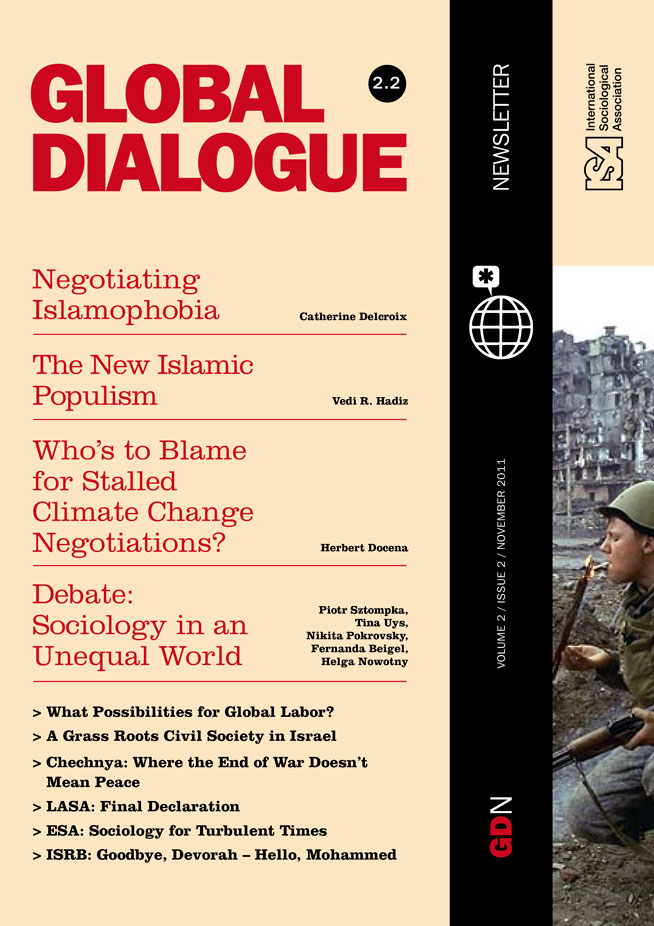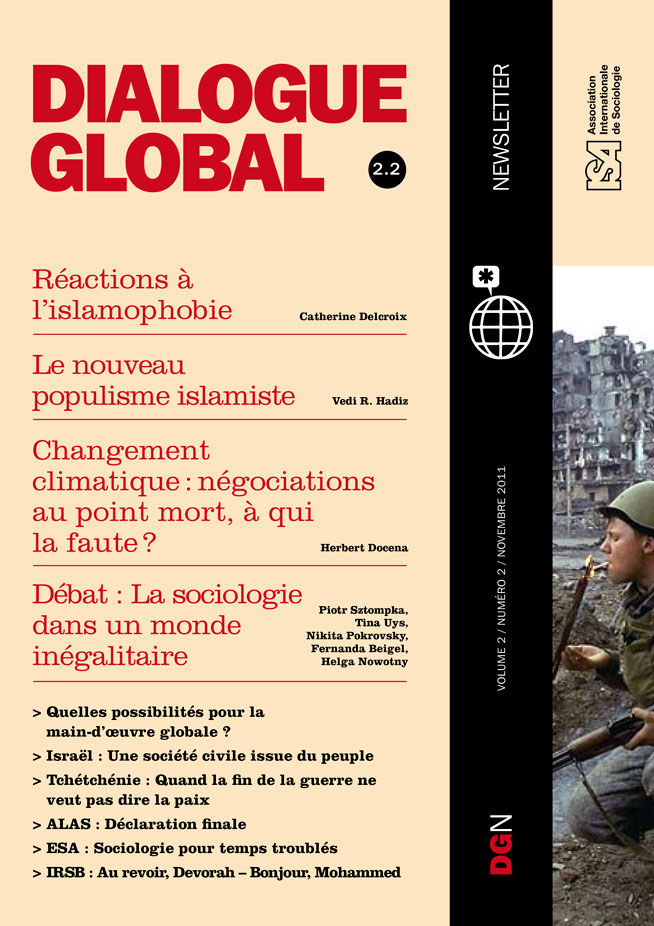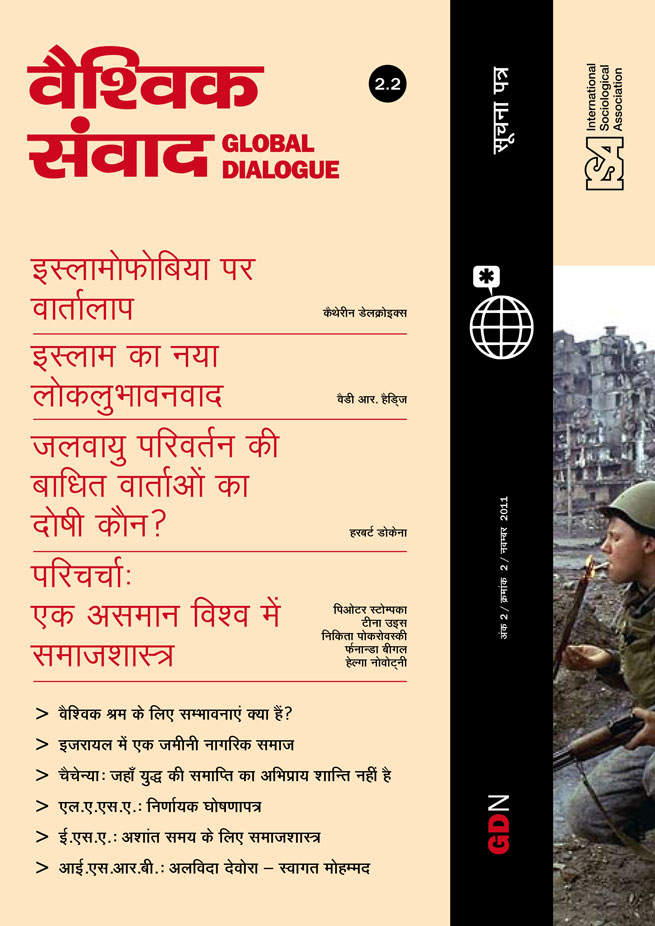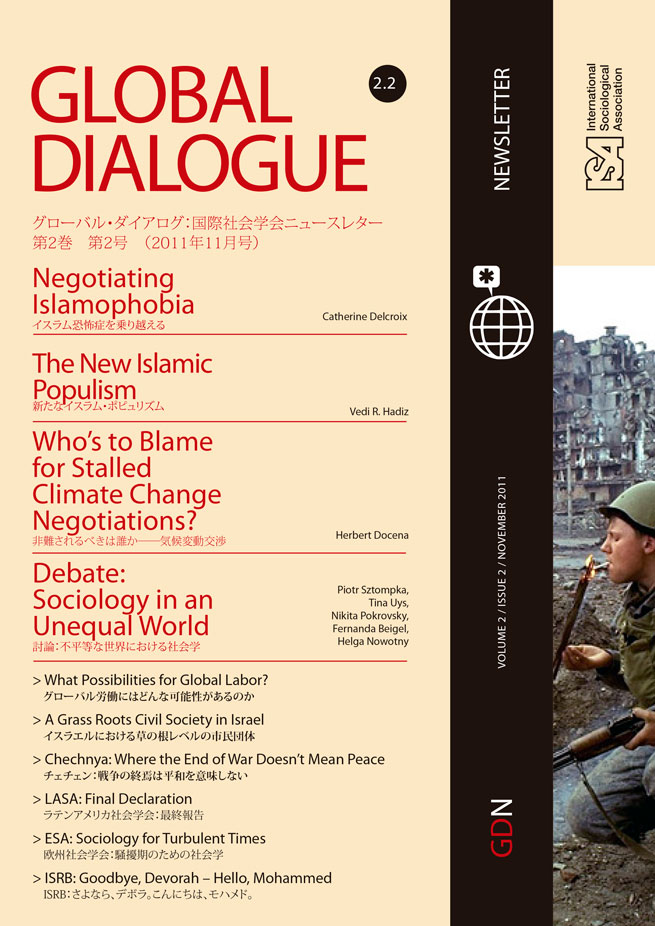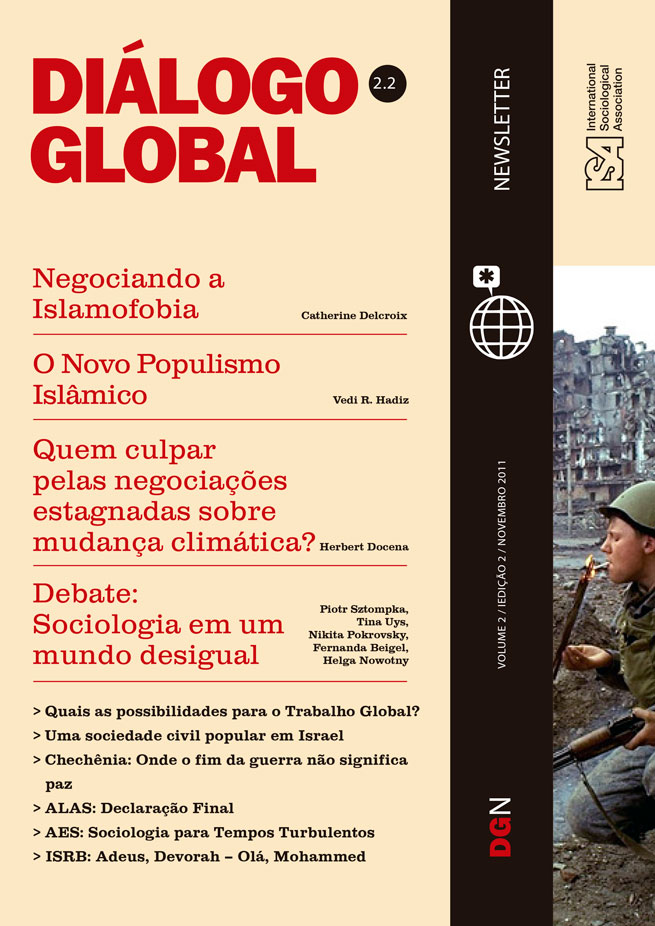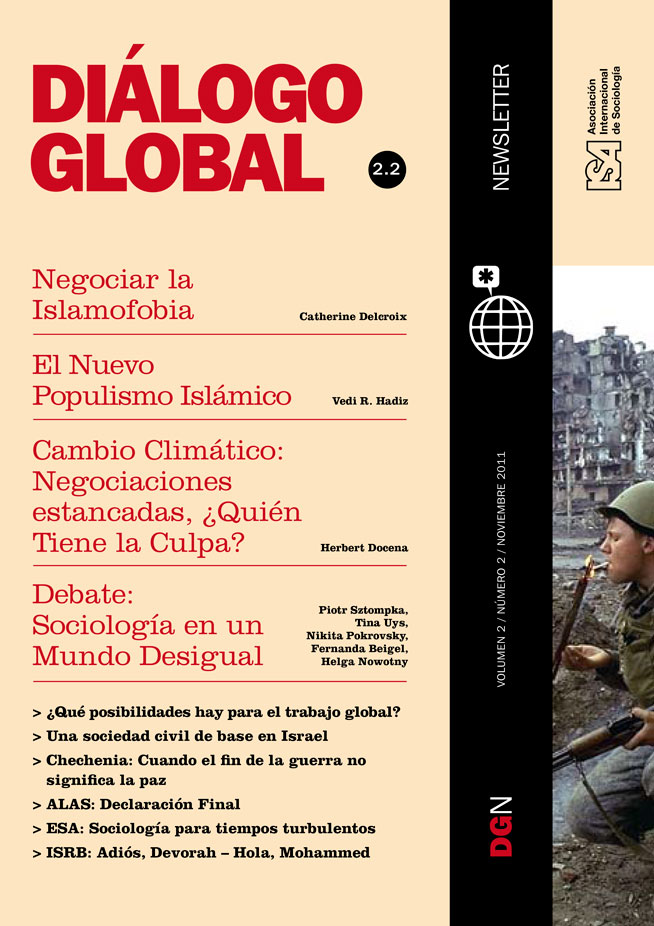In his attempt to reduce the sociology of sociology to an ideological exercise, Piotr Sztompka builds a cocktail of academic dependency, intellectual imperialism, and colonialism within sociology, which are lumped together, uncritically naturalized and peremptorily discarded by reducing them to ‘a reflection of those more fundamental external divisions in our globalized society’ (2011: 389). Leaving aside Sztompka’s disrespectful language used to describe peripheral scholars and their writings, my first argument is that critical studies of science have a long history, emerging in the North and in the South by the mid-20th century, when science (and especially social sciences) became embroiled in the Cold War. Academic dependency today has different dimensions and is its own paradigm within current sociology –a ‘multi-paradigmatic discipline’ according to Sztompka (2010: 22) himself.
As a research field, academic dependency is nourished on the social studies of science, critical epistemology and comparative studies of higher education. It encompasses the unequal structure of production and circulation of knowledge that has emerged historically along with the international scientific system. This structure is composed of institutional, material and symbolic processes, mutually related, which have produced different paths of academia-building. In the periphery, these combinations are the historical result of national and regional responses to internationalization – particularly given the diverse roles played by the state in scientific development and higher education.
There is no shortage of studies on the relation between scientific research and foreign aid, between publishing and scant material resources, about the uneven distribution of academic prestige among disciplines and institutions, or between dissimilar research capacities and heteronomous academic mobility. Within this research field we find the analysis of intellectual dependence, Euro-centrism and colonialism within knowledge production. These studies critically converge with dependency analysis and Latin American structuralism – two traditions mainly concerned with economics and politics. In the second half of the 1970s, pioneer works by Edward Shils, Joseph Ben David and Philip Altbach attested to specific factors shaping subordination within the academic field. In 1988, Frederick Gareau published an important paper in International Sociology arguing that Western-forged social sciences built their ‘truths’ with only marginal input from the Third World, a fact that raised serious questions about their objectivity. His analysis of the International Encyclopedia of the Social Sciences showed that 98.1% of the authors were affiliated to North American or European universities – the latter being mainly in the UK, France and Germany.
Recent studies show that ‘universal standards’ for sociological research and ‘good theory’ have been constituted and legitimized by the ‘international’ publishing system started by Eugene Garfield in the 1950s. For many decades, the Social Science Citation Index’s rankings have been dominated by US and European journals. Academic prestige was progressively concentrated and a set of international hierarchies was established – separating research completed in more prestigious academic centers from marginal knowledge produced and published outside these centers. Despite the growth in scientific production in many peripheral countries, Latin America, Asia and Africa currently contribute less than 20% of the articles published in SSCI (Beigel, 2011).[1] As a result, striving for academic autonomy has been a complex and uphill task for peripheral sociologies, while it is simply taken for granted in American or French Sociology.
The World Social Science Report (UNESCO, 2010) showed that unevenness in institutional settings, translation capacities and material resources are powerful determinants in academic life. Collaborative research is still dominated by North-North partnerships, with a minute share of joint South-South articles (2010: 146). Heilbron has shown that symbolic goods produced by central academies – and written in English – have a dramatically broader international circulation than those produced in dominated languages (Spanish, Portuguese, Arab, Russian). The latter’s ‘export’ rates are very low or even zero, as they have minimum access to the more prestigious journals published by the established research centers. It has also been demonstrated that a peripheral circuit can, eventually, reduce foreign imports and increase endogenous production of concepts or theories, but it is far more difficult to increase their international circulation. Especially in the social sciences, these ‘peripheral centers’ have reached dominant positions within Southern regions, but remain subordinate within ‘Global Sociology’ (Beigel, 2010).
There is no consensus on the possibilities and paths to overcome academic dependency. From the standpoint of the individual scholar, career-building through international graduate education and publishing in English undoubtedly have provided successful passages to academic recognition – although it has been most generally effective for natural sciences. However, this individual path of accumulating scientific capital does not necessarily lead to broader scientific development in peripheral societies.
A final word on the opposition between Western sociology and Indigenous sociology – two position-takings that have been reduced by Sztompka to homogeneous stereotypes. Sociology in the peripheries is not a new phenomenon, it has its own history, and its own oppositions – one big debate being precisely around the status of indigenous knowledge. Equally, the dichotomy also fails to recognize critical perspectives that have been circulating within ‘Western Sociology’ for at least fifty years. In fact, we do have many sociologies in the West and ‘in the Rest’.
[1] I have studied the increasing challenge of the open access movement to the SSCI and other mainstream citation indices, along with opposition to the very discussion of international publishing standards within these alternative journals and data bases (Beigel, 2011).
References
Beigel, F. (2010) “Social Sciences in Chile (1957-1973). A laboratory for an autonomous process of academia-building.” Pp.183-212 in Academic Dependency in the Social Sciences: Structural Reality and Intellectual Challenges, edited by S. F. Alatas and K. Sinha-Kerkoff. New Delhi: Manohar.
Beigel, F. (2011) “Científicos Calibanes. Las ciencias sociales latinoamericanas en la encrucijada del sistema académico mundial”. Valparaíso, IV Congreso Chileno de Sociología.
Gareau, F. (1988) “Another type of third world dependency: the social sciences,” International Sociology 3(2): 171-178.
Sztompka, P. (2010) “One Sociology or many?” Pp.21-28 in The ISA Handbook of Diverse Sociological Traditions, edited by S. Patel. London: SAGE.
Sztompka, P. (2011) “Another Sociological Utopia,” Contemporary Sociology 40(4): 388-396. UNESCO. (2010) World Social Science Report. Knowledge Divides. Paris: UNESCO.
Fernanda Beigel, Consejo Nacional de Investigaciones Científicas y Técnicas, Universidad Nacional de Cuyo, Mendoza, Argentina


